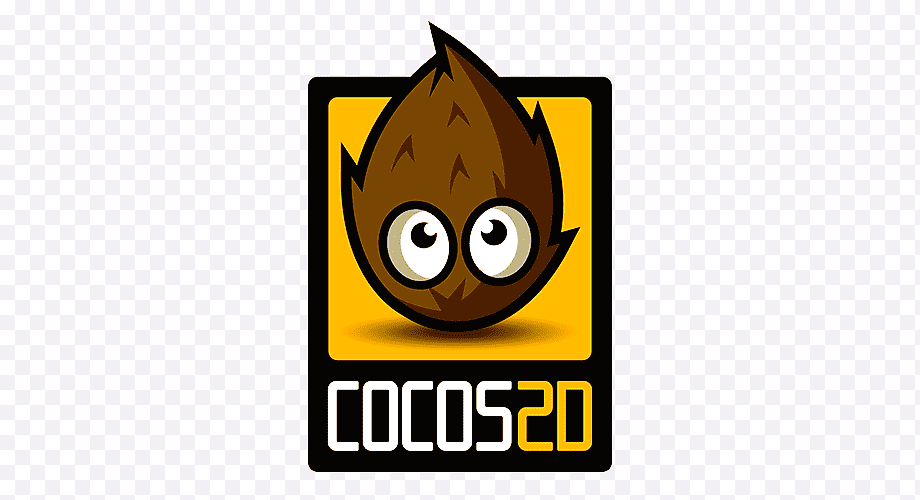Alright, grab a seat and crack open your favorite energy drink, because we’re diving into something that’ll seriously up your game—game engines. Whether you’re grinding multiplayer sessions, building your indie masterpiece, or trying to hit those esports highs, these engines are the magic behind it all. But it’s not just about picking one—it’s about knowing which engine will make your life easier, your gameplay smoother, and your designs pop.
So let me break it down for you, from a gamer to a gamer, without the tech jargon overload. We’re talking Unity, Unreal Engine, and a few others that are making waves. Ready? Let’s go.
1. Unity: The Underdog With a Big Heart
Unity’s been around for a while, and I’ve got mad respect for how much it’s evolved. It’s like that reliable sidekick you can count on when you’re building your dream game. This engine is flexible, and whether you’re making a mobile game, an indie hit, or just experimenting with new mechanics, Unity’s the right hand to have in your corner.
Why Gamers Love Unity:
- Cross-platform compatibility – If you’re thinking about building a game that can jump from PC to mobile to consoles, Unity’s got you covered.
- Asset Store – Don’t wanna make everything from scratch? The Unity Asset Store is like a treasure chest of ready-made models, sounds, and tools to speed up development.
- Simple, but powerful – Unity’s been called “user-friendly,” and while it’s perfect for smaller games, it doesn’t slack off when it comes to handling larger projects either.
When Unity Might Not Be Your Best Friend:
- Graphics can be hit-or-miss – If you’re looking for ultra-realistic visuals, Unity might need a bit of extra work. But hey, if you’re into stylized art or pixel games, you’re golden.
- Performance tweaks – It can get a little tricky optimizing for complex games with tons of assets. But that’s a challenge most engines face. Did you like the article? Read also the article about Make Your First 2D Game.
Who Should Use Unity?
- Indie devs.
- Mobile game creators.
- VR developers.
- Modders who want a lot of flexibility.
2. Unreal Engine: The Beast of Visuals and Power

If Unity’s your trusty sidekick, Unreal Engine’s the beast you call in when you’re aiming to blow people’s minds with graphics. Unreal is like that super-powered tool you only pull out when you need something truly epic—think photorealistic landscapes and physics that make you feel like you’re living inside the game. It’s not just for show though; it’s got power under the hood that you can tap into.
Why Gamers Love Unreal:
- Stunning graphics – Unreal Engine has the power to make your jaw drop. It’s got the Unreal Engine 5 bells and whistles, from Nanite (real-time geometry rendering) to Lumen (dynamic global illumination). Unreal’s power isn’t just flashy, it’s smart.
- Blueprints (Visual Scripting) – You don’t need a PhD in coding to get your game going. Blueprint lets you create complex systems without writing a line of code.
- Free to start – Unreal’s free to use for small projects, and once you’re bringing in revenue, they take a small royalty cut. No crazy up-front costs.
When Unreal Might Give You a Headache:
- Steep learning curve – If you’ve never worked with Unreal before, be ready for a bit of a grind. It’s powerful but complex.
- Hardware heavy – Running Unreal Engine at its full glory requires some serious horsepower. So, if you’re working on a modest setup, prepare for lag while testing.
Who Should Use Unreal Engine?
- AAA game developers.
- Esports teams wanting the highest fidelity gameplay.
- Streamers aiming to create an immersive world.
- Modders looking to push the envelope with advanced visuals.
3. Godot: The Free Spirit
Alright, here’s the one you may not have heard of as often, but Godot’s making waves. It’s like the indie darling of the game engine world. Super flexible, open-source, and without the big studio budgets—this one’s all about creative freedom. It doesn’t have the name recognition of Unity or Unreal, but it’s building a pretty loyal following.
Why Gamers Love Godot:
- Completely free – No royalties, no hidden fees. You can build your game and keep all your earnings.
- Lightweight and easy to learn – Godot’s simple enough for smaller projects but still packs enough punch for bigger ones.
- Flexible scripting – You can use GDScript, C#, or even C++ for your game’s logic, depending on your skills.
When Godot Might Not Be Your Best Friend:
- Graphics are not top-tier – It’s great for 2D and mid-tier 3D games, but it might not blow your mind with insane visuals.
- Limited third-party support – Compared to Unity and Unreal, Godot doesn’t have the same massive asset store or massive community. But it’s growing fast!
Who Should Use Godot?
- Indie devs on a budget.
- 2D game creators.
- Those who want total freedom with their game’s code and structure.
4. CryEngine: The Silent Powerhouse
Now, CryEngine’s a bit of a dark horse. It’s not as popular as Unity or Unreal, but it’s got some serious tech under the hood. This is the engine behind iconic games like Far Cry and Crysis, and it’s known for its hyper-realistic environments and solid AI. If you want to build a world that feels like it lives and breathes, CryEngine’s worth checking out.
Why Gamers Love CryEngine:
- Incredible realism – CryEngine’s ability to handle complex lighting, water, and terrain systems is insane. If you’re making something like an open-world game, this is the way to go.
- Great for first-person games – Its FPS engine is top-tier, and it’s optimized for high performance in those types of games.
When CryEngine Might Not Be Your Best Friend:
- Harder to learn – CryEngine doesn’t have the friendly learning curve of Unity, so don’t expect to be building masterpieces right out of the gate.
- Not as widely used – This means fewer tutorials and less community support, so you’ll have to do more of the heavy lifting yourself.
Who Should Use CryEngine?
- Devs aiming for ultra-realistic first-person shooters.
- Those creating expansive, detailed worlds.
- Game studios looking to push the visual limits.
5. Cocos2d: For the Mobile Devs

Here’s the engine that might fly under your radar if you’re not a mobile game developer. But for anyone looking to develop mobile games, Cocos2d is a beast. It’s optimized for 2D games, and while it might not give you AAA-level graphics, it’ll help you create smooth, polished games for mobile platforms.
Why Gamers Love Cocos2d:
- Fast and lightweight – This engine is like a caffeine shot for your mobile game. It’s fast and efficient, perfect for tight, smooth gameplay.
- Open-source – You can do what you want with it. The community’s active, and the support is great for a smaller engine.
When Cocos2d Might Not Be Your Best Friend:
- Not ideal for 3D games – Cocos2d’s power is in its 2D, so don’t expect it to handle 3D gameplay the same way Unity or Unreal would.
- Limited features compared to the big guns – If you’re aiming for crazy complex mechanics, you may run into some roadblocks.
Who Should Use Cocos2d?
- Mobile game developers.
- Indie devs creating simple 2D games.
- Those who need something lightweight and fast.
Wrapping Up: Choose Your Weapon
At the end of the day, the best game engine is the one that fits your vision. Each of these engines comes with its strengths, and knowing when to wield each one is what’ll make you stand out as a developer, modder, gamer, or streamer.
Here’s a quick table to break it down for you:
| Engine | Best For | Pros | Cons |
|---|---|---|---|
| Unity | Indie devs, mobile games, VR | Cross-platform, Asset Store, easy to use | Graphics, performance tweaks |
| Unreal | AAA devs, esports, immersive experiences | Stunning graphics, free to use, Blueprints | Steep learning curve, hardware heavy |
| Godot | Indie devs, 2D games, complete freedom | Free, flexible scripting, simple to learn | Limited 3D capabilities, smaller community |
| CryEngine | Realistic FPS, expansive open worlds | Amazing realism, optimized FPS | Hard to learn, limited community support |
| Cocos2d | Mobile devs, 2D mobile games | Fast, lightweight, open-source | Not ideal for 3D, limited features |
So, whether you’re a game dev looking for flexibility, a gamer chasing smooth performance, or a modder testing wild new ideas, these engines have something to offer.
Need more info? Dive deeper into these engines at Wikipedia and start creating. Happy gaming! 🎮

